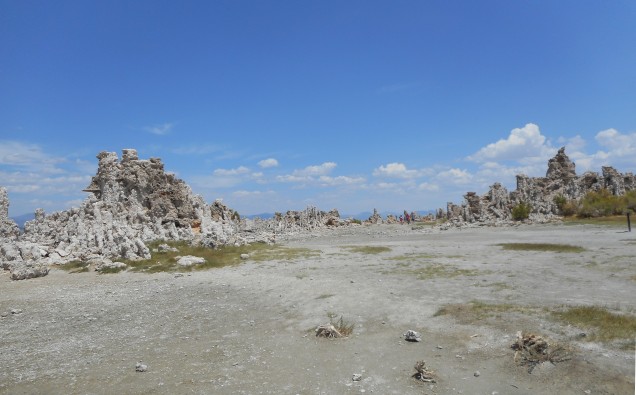
Despite warnings of cataclysmic consequences from deteriorating environment and rising temperatures, several factors including distrust among nations, and Washington’s politically espoused positions are hindering movement toward implementing the goals of Paris Climate Agreement.
Around 100 government leaders started negotiating a final deal on moving forward with climate action at the United Nations COP24 conference being held in Poland.
But the goal seems as far off as ever with just three days from the conference conclusion.
“Key political issues remain unresolved,” said Mr. Guterres. “This is not surprising—we recognize the complexity of this work. But we are running out of time,” UN Secretary General António Guterres warned.

UNFCCC Secretariat An Earth Council Flash Mob at COP24 in Poland to remind all negotiators and leaders that everything is moving too slow and that we have to take action now.
An alarming special report on global warming issued in October by the Intergovernmental Panel on Climate Change (IPCC) said the temperatures could rise rapidly if the world did not act immediately.
“Despite progress in the negotiating texts, much remains to be done,” the UN Chief said.
Here are five of the most major tension points as listed by the United Nations:
- A common goal, but different parties, different realities
The first point of tension here is that some countries feel the need for global action more acutely than others. Take the plight of small island nations, for example, and areas of extreme weather activity such as the Sahel or the Polar regions.
In addition, industrialized countries are considered to have benefitted for decades from an economy that had no limits on greenhouse gas emissions, and therefore, they should take the biggest responsibility when it comes to the global effort to reverse the trend. But then again, others contend that some currently developing nations, now have record emissions and that climate action responsibility should lie with them to a greater extent.
- Country categories
The Climate Change Convention, adopted in 1992, divides its 197 parties into two main groups: the industrialized group of 43 nations, and the developing group of 154, including 49 “least developed countries”.
The climate action contributions and responsibilities of each group differ with regards to how transparently and regularly they communicate their actions and provision of support; especially in terms of finance or technology-transfer, now, and in the long term.
Because the two groups were established more than 25 years ago, and taking into account that national socio-economic situations have evolved over time, some parties feel that the composition of these groups should be reassessed as we look to implement the Paris commitments. However, there is no process to change this grouping – and none is planned or anticipated – another complex point for this COP.
- ‘Welcoming’ or ‘noting’ the science?
To facilitate the political discussions and ground them in fact, various scientific reports are being considered at COP24. One of them is last October’s landmark Special Report on Global Warming of 1.5˚C, prepared by the Intergovernmental Panel on Climate Change (IPCC), drawn up by hundreds of scientists from around the world. The report, commissioned as part of the Paris Agreement, states that limiting the rise in temperatures to 1.5°C by the end of the century compared to pre-industrial era, remains possible, but will require an “unprecedented” shift in every aspect of our societies.
While all countries acknowledge the need to tackle climate change, one of the debates here at the COP is whether the IPCC report should be officially “welcomed” or merely “noted.” This seemingly small language technicality raises a critical question: to what degree should policy be based on science? It also signals a difference on how urgently and intensely various countries want to engage in climate action moving forward.
- The ever-so thorny question of financing
Climate action – which requires new technology, infrastructure and skills – represents a cost that some nations, especially the least developed and most vulnerable, cannot carry alone. In Paris, donor nations committed to mobilising $100 billion every year to fund climate action in developing countries, starting in 2020. This figure would include public and private contributions, which renders the reporting quite complex… Countries are arguing on how close we are to meeting that target and whether it will be met by 2020.
Another burning issue is the lack of clarity over what constitutes “climate finance”, as many countries report some of their “development aid” as “climate action aid”. This lack of clarity complicates the discussions considerably, and questions regarding reporting, transparency and accountability are on the table.
- Guidelines for true trust among nations
All the countries recognize the need for guidelines to be in place, so they can move on to implementing the Paris Agreement, and they are all mindful of the 2018 deadline. However, if we are to course-correct fast and well, efforts and investments are required – including in economic transition, ambitious reductions in greenhouse gas emissions, technology exchange and knowledge-sharing.
What it all comes down to, is the ephemeral trust among nations, an important element that can only be realized if tangible transparency measures are in place.












